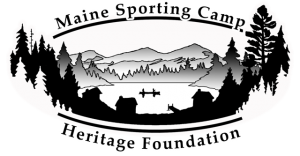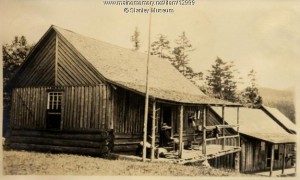A special component of the Foundation’s business assistance programs is directed at helping sporting camps and related support businesses to better understand their markets, become more financially sustainable and therefore better contributors to local economies.
Background Need
A key weakness common to these businesses is a lack of understanding of basic marketing principles, and recent trends in their potential customer base. The Foundation assists sporting camps in these areas by working individually and more broadly through other education methods such as seminars, conferences and workshops.
The Sustainable Economy Initiative of the Northern Forest Center released its report “Economic Resurgence in the Northern Forest” in October 2008. It concluded that the next generation of economic development in the Northern Forest will be led by smaller, locally grown businesses and civic organizations. In an increasingly global marketplace, however, the region’s leaders must invest extra effort to inform, connect and provide financial support and infrastructure to enable these ventures to thrive. Building this capacity was noted as the key to rebuilding the economic future of the Northern Forest, but that the small communities and small businesses – especially in a rural area like the Northern Forest – need assistance and support to provide these capacities.
In his report “Sustaining Nature-based Tourism in Vacationland,” David Vail, Professor of Economics at Bowdoin College, noted that two of tourism’s underlying weaknesses are low labor productivity and seasonality. He noted that low productivity results in part from many employees’ limited skills, experience, and motivation, and was also significantly affected by many employers’ limited managerial capacity and their slim profit margins. One solution he offered is to shift tourists’ demand toward higher-end recreational and hospitality services. This requires the business expertise that will be provided by the Foundation and many others, as well as specific tourism-related service skills that would be channeled to the sporting camp community.
A study by Gore Flynn (Opportunity Assessment for Increased Nature-Based Tourism for Maine Sporting Camps and Guides, June, 2005) under an award from the Economic Development Administration, U.S. Department of Commerce (Project # 01-79-07250), surveyed sporting camp owners, found that this lack of expertise had contributed to the camps’ economic plight.
For example, rates for Maine camps were found to be generally quite low with respect to rates in other parts of the country. The study concluded that the lack of willingness to raise prices has likely been a driver of the unwillingness or inability to modernize. Most respondents keeping prices low reported that they did so to preserve their existing customers whom they felt could not pay much more. Low prices had also led to the inability of some camps to support sufficient advertising and marketing budgets to maintain profitability.
Why the Low Pricing? – Pricing is a difficult issue. Many owners report that they have to be mindful of not pricing themselves out of the market for Maine customers, who for many camps are still their core customer, and they have to be realistic about the quality of their facilities when compared with the $350/night B & B that has fancy furnishings and services. Some camps report being reluctant to try to upgrade their facilities significantly and shift to a more upscale, out-of-state clientele because they still need the Maine customer base for a high occupancy.
Several survey respondents thought that many camp owners have no idea that they are pricing themselves so far under the market. One owner who charged $350/week for a housekeeping cabin got suspicious about pricing when his out-of-state customers began leaving $200 or more tips despite not getting any services. (This is a cultural problem for Maine natives in all aspects of business and is due in part to Maine being such a poor state with respect to the rest of the country that natives just get used to charging the minimum amount necessary to survive so that they will not be perceived as bleeding their neighbors.)
A sizeable number of the camp owners surveyed saw the key to raising prices was to significantly upgrade the quality of the facilities and to expand the service package. Several programs have been initiated by various state tourism agencies to help businesses learn how to develop and market their services. The Foundation will seek to further develop these concepts.
The survey also noted that nearly all sporting camps had web sites that present thorough information about the camp and services and nearly all include rate sheets. It is a common problem with small businesses like the sporting camps that few have the knowledge to make best use of the websites in a fully integrated marketing plan. The Foundation will provide seminars and assistance in this very important business specialty.
In addition the more vibrant sporting camp industry, The Foundation also helps to develop ancillary businesses that will serve the sporting camps, the visitors to the sporting camps, or will make direct use of the increased tourism opportunities provided by the Foundation’s cultural and conservation programs.


